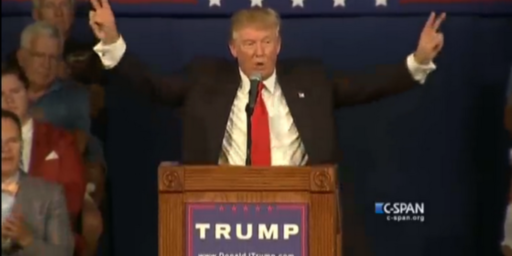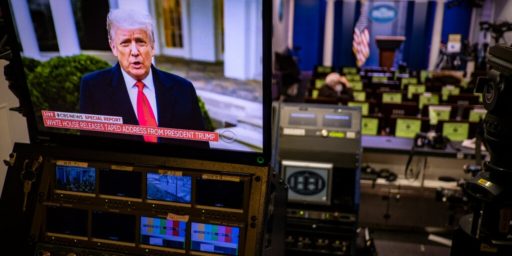Political Strategery
Matthew Yglesias explains why, if the Democrats could control only one of the three elected branches, he’d prefer the House.
Party discipline is much tighter in the lower house and so control per se makes a much bigger difference. Given that no one’s going to secure a 60 vote supermajority in the Senate, effective control there is going to rest with a handful of wishy-washy moderates one way or the other. Which isn’t to say that I wouldn’t like to see Democrats run the Senate (it’s also a much more realistic goal), but I’d prefer the House.
In some ways I would sort of rather control the House than the White House, too. The counterargument here is obvious, and basically correct, but as a lifelong city-dweller I’d like to see urban America gain some power in the political process, and a Democratic House is the only way to bring that about.
The problem from a Democratic Party perspective is that taking back the House is virtually unthinkable given the current districting. But I agree that it’s much preferable to have a majority in the House than the Senate, since a minority can obstuct legislation in the Senate, anyway.
Of the three choices, though, clearly the White House is the most important. As Bill Clinton demonstrated, an audacious president can get quite a bit done even if the opposition controls both Houses of Congress. For one thing, the president can do a lot by simple fiat, issuing executive orders, sending troops into combat, and so forth. Plus, Congress essentially reacts to presidential initiatives in the modern age, having a lot of power to obstruct but little ability to do much on its own.





